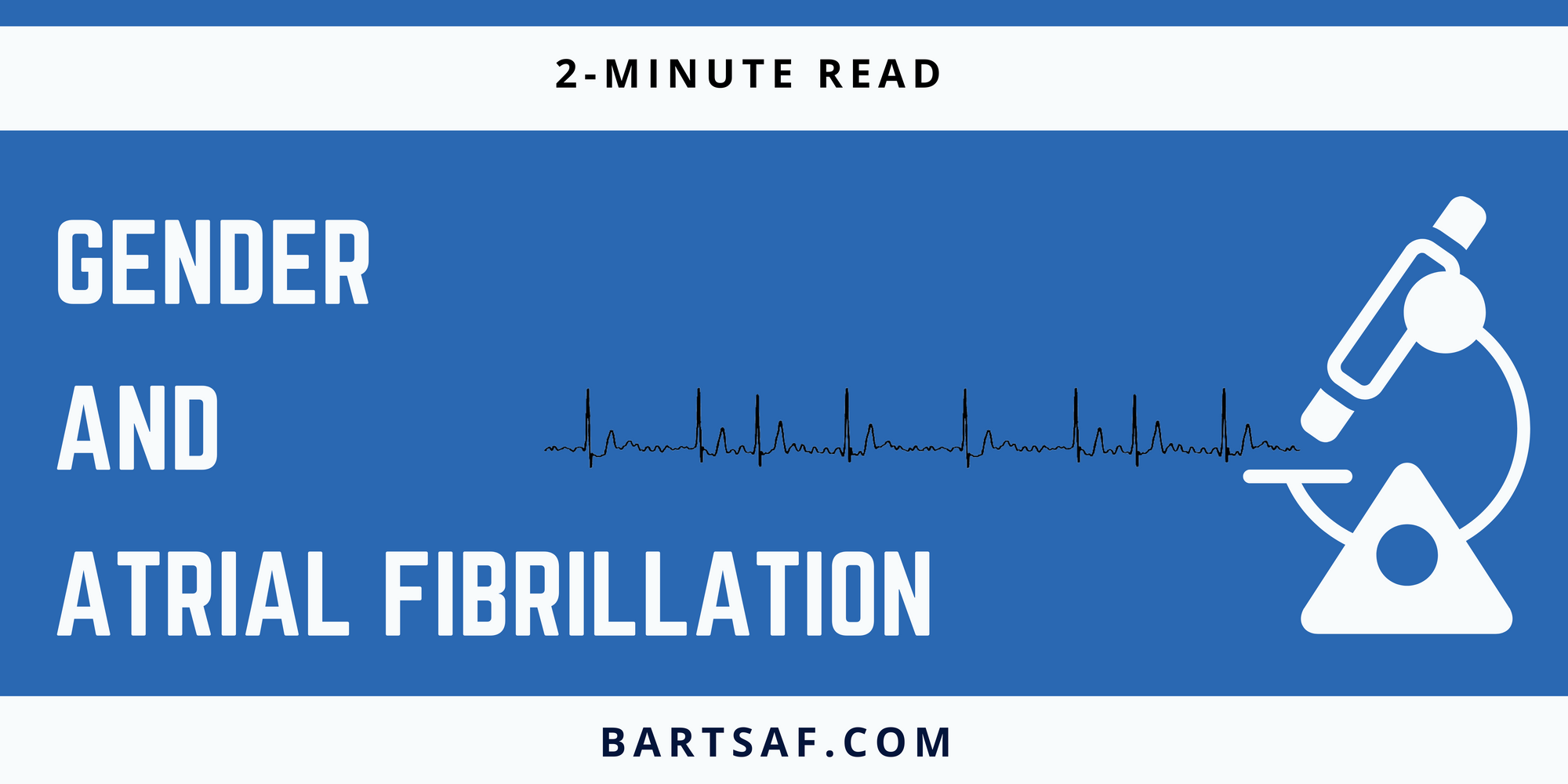Gender and AF

Men are more susceptible to developing AF than women. However, the cumulative lifetime risk of ever developing AF is similar (around 30%). This is due to the increasing likelihood of having AF as you get older and the fact that women tend to live longer than men.
Women tend to develop AF 10 years later than men and there are other differences in how they experience symptoms and how they are managed as well. Much data on this topic comes from large-scale registries or surveys following-up tens of thousands of patients for several years. For example the ORBIT-AF registry reports on findings from >10,000 AF patients from across America, of whom 42% were women. A greater proportion of women were symptomatic (68% versus 58% of men) and had a lower reported quality of life as well. Over the average of 2.3 years of follow-up, women had a higher risk of stroke but their overall risk of dying was lower. The EORP-AF registry, made up of >3000 AF patients from across Europe, dissected the differences in symptoms further; palpitations and anxiety/fear were the more commonly reported symptoms in women and the psychological and physical components of the 'quality of life' surveys were worse in women.

Registry data also suggests women tend to be prescribed different medications; less likely to receive beta-blockers, less likely to receive anti-arrhythmic drugs and less likely to be referred for catheter ablation (and when it does happen it's later in the disease process). This may well be due to legitimate differences in AF experiences or gender-based preferences in treatment choices however, we have to also consider whether subconscious biases in physician decision-making (primary care and specialist) exist.
There has been a media campaign to raise awareness of the different heart attack symptoms that women experience in recent years. In AF, what are the reasons for disparity? Is it an issue of awareness? Why is the rate of strokes higher in women but risk of death lower? Is there a physiological reason why AF is more severe in women? At a time when personalised healthcare is becoming increasingly prevalent, it is important that we develop a better understand of the mechanisms of sex-related differences apparent throughout the AF journey.
Piccini JP, Simon DN, Steinberg BA, et al. Differences in Clinical and Functional Outcomes of Atrial Fibrillation in Women and Men: Two-Year Results From the ORBIT-AF Registry. JAMA Cardiol. 2016;1(3):282–291. doi:10.1001/jamacardio.2016.0529
Lip GY, Laroche C, Boriani G, Cimaglia P, Dan GA, Santini M, Kalarus Z, Rasmussen LH, Popescu MI, Tica O, Hellum CF, Mortensen B, Tavazzi L, Maggioni AP. Sex-related differences in presentation, treatment, and outcome of patients with atrial fibrillation in Europe: a report from the Euro Observational Research Programme Pilot survey on Atrial Fibrillation. Europace. 2015 Jan;17(1):24-31. doi: 10.1093/europace/euu155. Epub 2014 Jun 22. PMID: 24957921.
